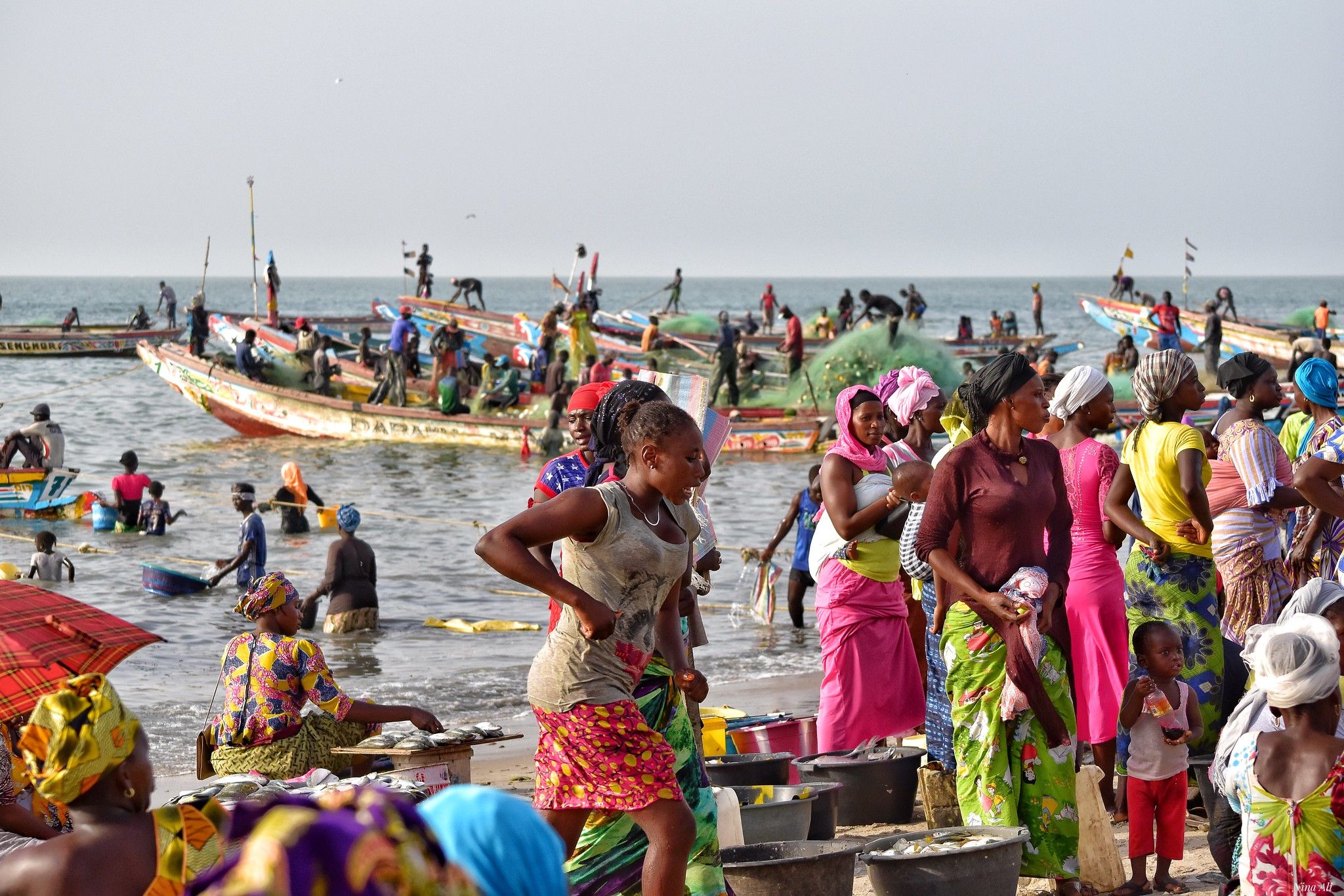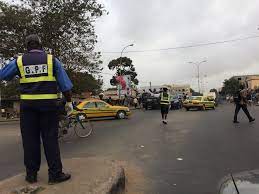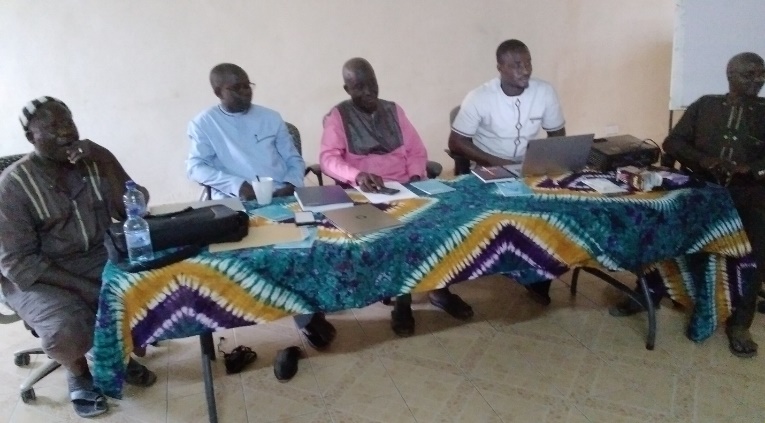Feature
By Nyima Sillah
At just 15, Aja Bintou (not her real name) was lured into having sex just for D200 with an offer from an unknown man at the seaside. She was on a mission to fulfill a conditional demand from her mother to put money on the table to fend for the family by any means possible or she won’t spend the night at home. This is one of the shocking tales of child labour, especially involving female children in the Gambia where laws that are in place to protect children are not implemented.
She toils to feed the family. She would regularly visit the fish-landing sites such as Tanji as early as 8 am each day as a fish vendor to make sales. She sometimes also sells bananas, vegetables, ice blocks at garages, etc.
“When it is 2 pm, I usually go home and give all the money to my mother. She would use this money to cook lunch and I would go back to the beach again.”
But on this fateful day, Aja Bintou had arrived home empty-handed because it was one of those bad days when no sales were made. And her mother never understood.
“There was a day that I could not get any money because there were no major fish-landing activities at the sea. I went home with no money, but my mother forced me to go back and bring money. I went back, and I was roaming at the beach till evening. Unfortunately, I saw a man who offered me D200 to have sex. I could not resist,” she weeps.
It is not only Aja Bintou’s mother who depends on young girl children as breadwinners of the family. Some mothers would do the act with pride while others would blame it on poverty. A 4- year-old mother Fatou Yabou told The Voice proudly that her child is the breadwinner because of the condition of the family.
“To have children work and bring money to us [parents] is normal. We did the same for our parents to have blessings. Waking up in the morning and there is nothing to offer your children, not even school lunch every day, at the end you don’t have a choice and all you can do is to send your child out there to bring you money.”
Fatou’s sentiment is a popular one across the country. Most parents doing the practice have long been citing poverty to justify the act declared illegal by the laws of the land. Activists have put a lot of awareness rising around the menace, but it remains unabated. But the new dimension of its disadvantages cannot be ignored.
The Network Against Gender-based Violence has recorded 941 cases of sexual violence between 2014 and 2018, 88 percent of whom were children.
“You go to Tanji at the seaside, you find a lot of children there especially young girls and they would be working from morning to evening and this has a lot of connection with prostitution as some of them would spend the night at the seaside, ” says Lamin Njie, a child rights activist.
“These kids at the Tanji sea side are used to making money for their families, at the end of the day, when they don’t make money, when they go home, they have problems with their families. Most of the time what they do is, instead of selling, they go there and sell their bodies to men just to go home with something.”
Njie bemoans child labour as he describes how the practice is exposing girls and eventually increasing teenage pregnancy in the country. “When these kids are left around roaming at the beach side, this is where they get most of these unwanted pregnancies. We have boys and grown-up men that use the vulnerability of these children to abuse them and their rights are always being violated.”
Apart from the fishing sector, sand mining spots have also become the new areas attracting child labour in the Gambia. A visit to the sites would show anyone the appalling number of children who are missing schools for economic gains benefiting their families. Some parents would get to the extent of setting an income target that they must deliver.
The child rights activist challenges the government to take up the responsibility by putting an end to the practice that is inimical to the future of children.
According to the U.S Bureau of International Labor Affairs in its Child Labor and Forced Labor Reports 2021 on Gambia, “children in The Gambia are subjected to the worst forms of child labour, including in commercial sexual exploitation, sometimes as a result of human trafficking, and in forced begging. Gaps in the law remain, including that the minimum age for work is higher than the age of compulsory education.
The intensity of the problem has attracted the former Vice President and renowned women and girl’s rights activist, Dr Isatou Touary, saying more young girls between the ages of 5-12years are being exposed to child labour than boys in the country.
“If you go to the market you see young girls between the ages of 5-12years carrying bananas, and oranges running from one place to another. Even at the time of going to school, you see them carrying all sorts of things and more girls are doing it than boys.”
Touray admitted to the economic situation many Gambian parents are struggling with, but the burden should not be carried by the children.
“At that formative age, the child should be going to school to have education,” she said.
Touray bemoaned that the lack of implementing the laws to protect the children is not helping. “These children are young, they can be subjected to rape, they can disappear, and they can be picked up,” she added.
National Coordinator of Child Protection Alliance (CPA), Lamin Fatty also expressed frustration with the lack of implementation of laws to protect children against child labour. According to him, there is a penalty around child labour, but, shockingly, no one has been convicted for the practice.
He also stressed the social and cultural reasons that draw back the law enforcers from prosecuting parents for crimes they committed against their children, something he believes is unacceptable.
“Government needs to invest to make sure that those vulnerable families can gather at least some empowerment to substitute the child being on the street,” Fatty said.
The issue of child labour comes with many other consequences apart from sexual exploitation. Many young girls have been subjected to trafficking, while others who do not have the means to sell revert to begging. Section 76 of the Children’s Act prohibits both streets from begging and selling.
“The government must realise that they have taken commitment at the international and regional levels by ratifying the legal instruments which obliged them to make sure that rights and welfare of children are well protected, respected and fulfilled,” Fatty told The Voice.
“We want to see more robust protection mechanisms not only having laws but when the laws are violated, we want to see the response in terms of prosecution and in terms of supporting the victims.
According to UNICEF’s Multiple Indicator Cluster Survey (MICS 2018), child protection continues to be dented in the country, frowning at the limited funding released by the government for the protection of the children, lack of technical and institutional capacity, limited coordination among child protection institutions, limited collection, analysis, management and use of data, weak implementation and enforcement of international and domestic legislation and policies, traditional and cultural beliefs and practices among other problems.




